September Weather, September Worries: SATs, Admissions & the Year 5–6 Growth Spurt
By My Mal Confidential
September is the month the air feels newly sharpened. Pencil tips, cooler mornings, fresh shoes that squeak down corridors. For children in Year 5 and Year 6, it’s also the month when the sky fills with two constellations: SATs and admissions tests. From a science lens (hello, Brian Cox) their brains are stars mid-formation; gravity and gas, pressure and light. From a storyteller’s lens (a whisper of Rowling, a dash of A. F. Steadman ), the road ahead is both school run and quest: lockers like portals, timetables like maps, teachers as kindly gatekeepers and occasional stressed dragons. And from a clinician’s lens, this season is a developmental sweet spot—a time to build confidence, not just scores.
Part 1: What’s really happening in Year 5–6 brains and bodies
Erikson: Industry vs. Inferiority
Children are asking: “Am I capable?” When feedback is only about marks, the answer can feel precarious. Pattern: try → compare → doubt → avoid. Our task is to engineer industry—small wins that accumulate into self-belief.
Piaget & Vygotsky: Concrete logic + scaffolding
Most Year 5–6 minds are in concrete operations—great at step-by-step logic, less keen on vague abstractions (“work harder”). Pair clear examples with scaffolding inside the Zone of Proximal Development: just-hard-enough challenges with a guide beside them.
Bowlby & Rogers: A secure base and unconditional positive regard
Children risk effort when they feel safe. The message beneath all messages is: “You are safe with me; you don’t have to earn your place here.” Safety unlocks curiosity.
Bandura: Self-efficacy
Confidence grows through mastery experiences, modelling, and coaching. Watching you attempt hard things (and narrate your process) is a quiet superpower.
Maslow: Foundations first
Sleep, breakfast, movement, connection. Without these, cognition is like Wi-Fi on one bar.
Beck, Padesky & Hayes (CBT/ACT): Helpful thinking, strengths and values
Thoughts aren’t “irrational”; they’re sometimes unhelpful. We teach children to notice a worry, anchor to a value (e.g., “I value learning/bravery”), and take the next do-able action.
Part 2: The SATs & Admissions Weather Report
Imagine worry as weather: it moves in, it moves out. We don’t scold the rain; we prepare.
Typical thought storms (and translations):
“If I fail this paper, everything is over.” → Catastrophising; the brain’s fire alarm.
“Everyone else is ahead.” → Mind-reading and selective attention.
“I’m just not a maths person.” → Fixed label that blocks effort.
Parent script (Rogers + Beck + Padesky Principles):
“I hear the worry voice saying this test decides everything. That voice is trying to keep you safe, but it’s not very fair. Let’s test a small step today and see what data we get. What’s the tiniest practice that would show bravery?”
Micro-experiments (Bandura/CBT):
One 10-minute timed paper section (not a whole paper). Prediction: “I’ll only get 3 right.” After: count wins, name what helped (strengths-based CBT), schedule the next attempt.
ACT diffusion (Hayes) for spiky thoughts:
“I’m noticing the story ‘I’ll mess it up.’ Thanks, brain. I’ll carry this story and do five minutes anyway.”
Part 3: The physical & emotional growth spurt (why routines matter now)
Body changes: growth spurts, shifting appetite, first hints of puberty for some.
Brain energy: more after-school fatigue, sometimes prickly moods.
Sleep pressure: needs remain high; screens and late practice erode recovery.
Family routine (Maslow first, then mastery):
Sleep window anchored (aim for consistent wake time).
Movement daily (our bias: non-contact Boxing/Muay Thai drills—rhythm + breath + fun).
Fuel: breakfast with protein + slow carbs.
Connection: a 10-minute “walk-talk” after school to let the day spill out.
Movement note (Brian-Cox-ish): aerobic bursts increase oxygen and neurochemistry supportive of learning; body first → brain follows.
Part 4: A four-week September Plan (parent + child)
Week 1 — Map & Soothe (Bowlby/Rogers/Beck)
Draw the worry weather map together: what triggers, where it shows up in the body, what usually helps.
Create a calm kit: 4-7-8 breathing, water bottle, walk-round-the-block, a short playlist.
Goal: two tiny wins (e.g., 5 questions in maths; read aloud 8 minutes).
Week 2 — Mastery Minutes (Bandura/Padesky)
Install “Mastery Minutes”; two 10-minute practice blocks, separated by movement (star jumps, shadow boxing, skipping).
End each block with a strengths log: What did I do that helped?
Week 3 — Values & Choice Principles (Hayes/ACT)
Choose a value word for the month: Curiosity, Bravery, or Kindness. Stick it on the fridge.
When worry barks, ask: “What would Curiosity/Bravery do for five minutes?”
Week 4 — Dress Rehearsal Principles (Vygotsky/Piaget)
One scaffolded mock: short, timed, with clear instructions.
Afterwards, do a two-column review: “Keep” vs “Tweak”. Concrete, not global.
Weekly ritual: Celebration Friday: a small, predictable treat tied to effort, not outcome. That’s our value. We learn through practice.
Part 5: Conversation starters for busy mornings
“On a scale of weather, what’s your sky today—sun, cloud, drizzle? What gear do we need?”
“What’s your first tiny win after school ten minutes; ten minutes, then we play?”
“If a friend said what your worry voice says, what would you reply?”
Keep language helpful vs unhelpful, not “right vs wrong”.
Part 6: When parents feel it too
Parents also sit exams of patience, guilt, comparison. Remember Rogers: you are already enough for your child. Remember Bandura: model trying, not perfection. Say out loud: “I’m nervous about this email, so I’ll do a two-minute draft. You can watch me start.” Children learn how to begin by watching you begin.
Set up your own peer support: a WhatsApp of three families who trade simple wins (“we did our Mastery Minutes”, “we walked to school today”). Community shrinks monsters.
Part 7: Our coaching flavour (how we work with you & your child)
Secure base first (Bowlby): we earn a child’s trust before we train their courage.
Strengths-based CBT (Padesky): we spot what’s working and scale it.
Helpful thinking (Beck): we rewrite stories from “I can’t” to “I can’t yet, but here’s my next step.”
Values-led action (Hayes): we connect practice to what matters—friendship, curiosity, fairness.
Scaffolded challenge (Vygotsky/Piaget): just-right difficulty, visible progress.
Whole-family habit design (Maslow/Bandura): sleep, food, movement, modelling.
Our non-contact Boxing & Muay Thai drills give instant, joyful feedback: stance → breath → jab of confidence. Children feel capable in their bodies; tests become another opponent they already know how to face—eyes up, guard high, feet moving.
September Pledge (print this)
We are a learning family.
We choose effort over perfection, progress over panic, values over fear.
We keep our bodies moving, our sleep steady, and our words kind.
We practise in minutes, not marathons.
We celebrate small wins.
We belong to each other; on cloudy days and blue-sky days.
Want support?
Join My Mal Confidential for parent & child peer groups in Trafford and nearby areas. We’ll map your worry weather, build a mastery routine, and turn this term into a season of industry, curiosity and courage; the kind that lasts long after results day.
Learn strong. Feel safe. Think bold.
Contact: info@wowconfidentialyou.com
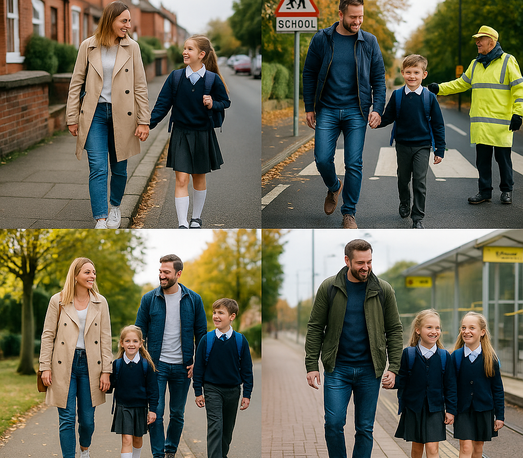
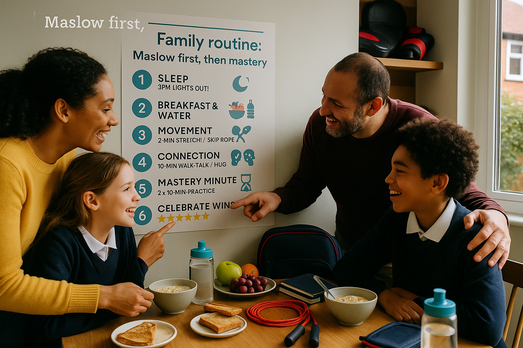

Contact: info@wowconfidentialyou.com
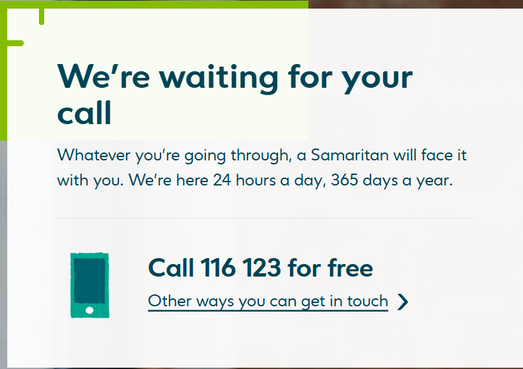
Contact: info@wowconfidentialyou.com
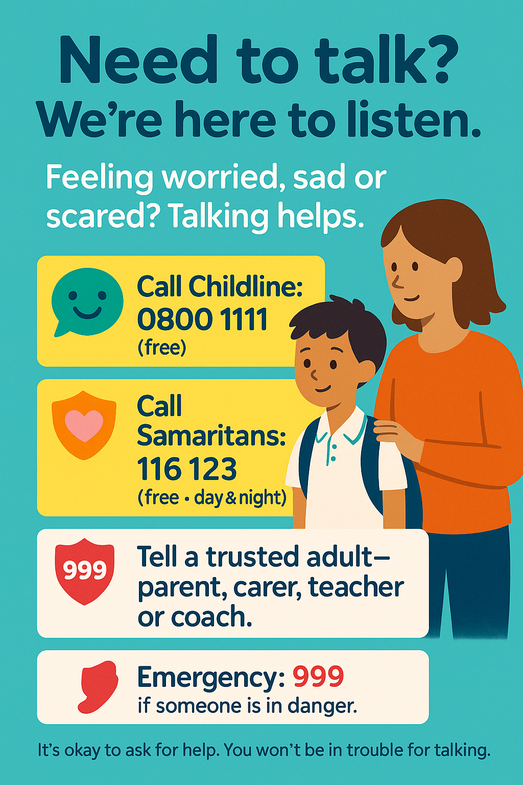
Contact: info@wowconfidentialyou.com
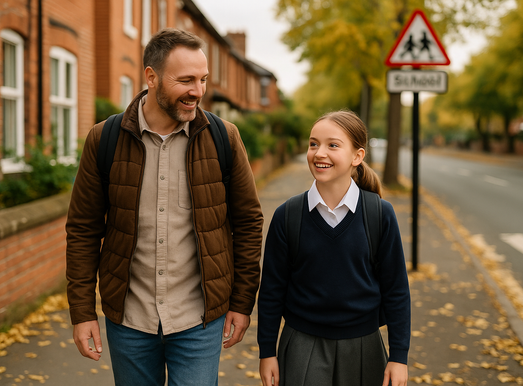
Contact: info@wowconfidentialyou.com

Contact: info@wowconfidentialyou.com

Contact: info@wowconfidentialyou.com
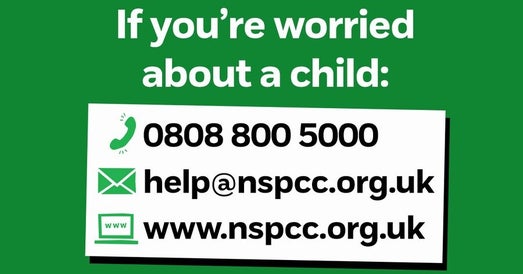
We offer a range of specialized services tailored to meet your individual needs. Our approach is focused on understanding and responding to what you require, providing effective and practical solutions. We are WoWConfidentialYou for parents and their children. Growth and Resilience.

